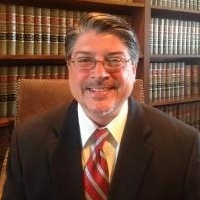Keo Collection Lawyer, Arkansas
Stephen B. Niswanger
✓ VERIFIEDLawsuit & Dispute, Collection, Real Estate, Contract, Construction
Steve Niswanger is the managing member of the firm and has about 20 years experience in business and general litigation and transactions, with an emph... (more)
Tony Anthony Dicarlo
Real Estate, Lawsuit & Dispute, Collection, Accident & Injury
Status: In Good Standing
Steve Niswanger
Business, Real Estate, Collection, Foreclosure
FREE CONSULTATION
CONTACTRobert M. Wilson
Collection, Landlord-Tenant, Real Estate, Foreclosure
Status: In Good Standing Licensed: 11 Years
Shellie Lynnette Wallace
Commercial Real Estate, Construction, Real Estate, Collection
Status: In Good Standing Licensed: 32 Years
Shellie Wallace
Commercial Real Estate, Construction, Real Estate, Collection
Status: In Good Standing Licensed: 32 Years
Paul Hickey
Commercial Real Estate, Collection, Bankruptcy
Status: In Good Standing Licensed: 49 Years
Aaron Lee Squyres
Commercial Real Estate, Real Estate, Litigation, Collection
Status: In Good Standing Licensed: 33 Years
Kathryn Lachowsky Khan
Commercial Real Estate, Collection, Bankruptcy
Status: In Good Standing Licensed: 13 Years


